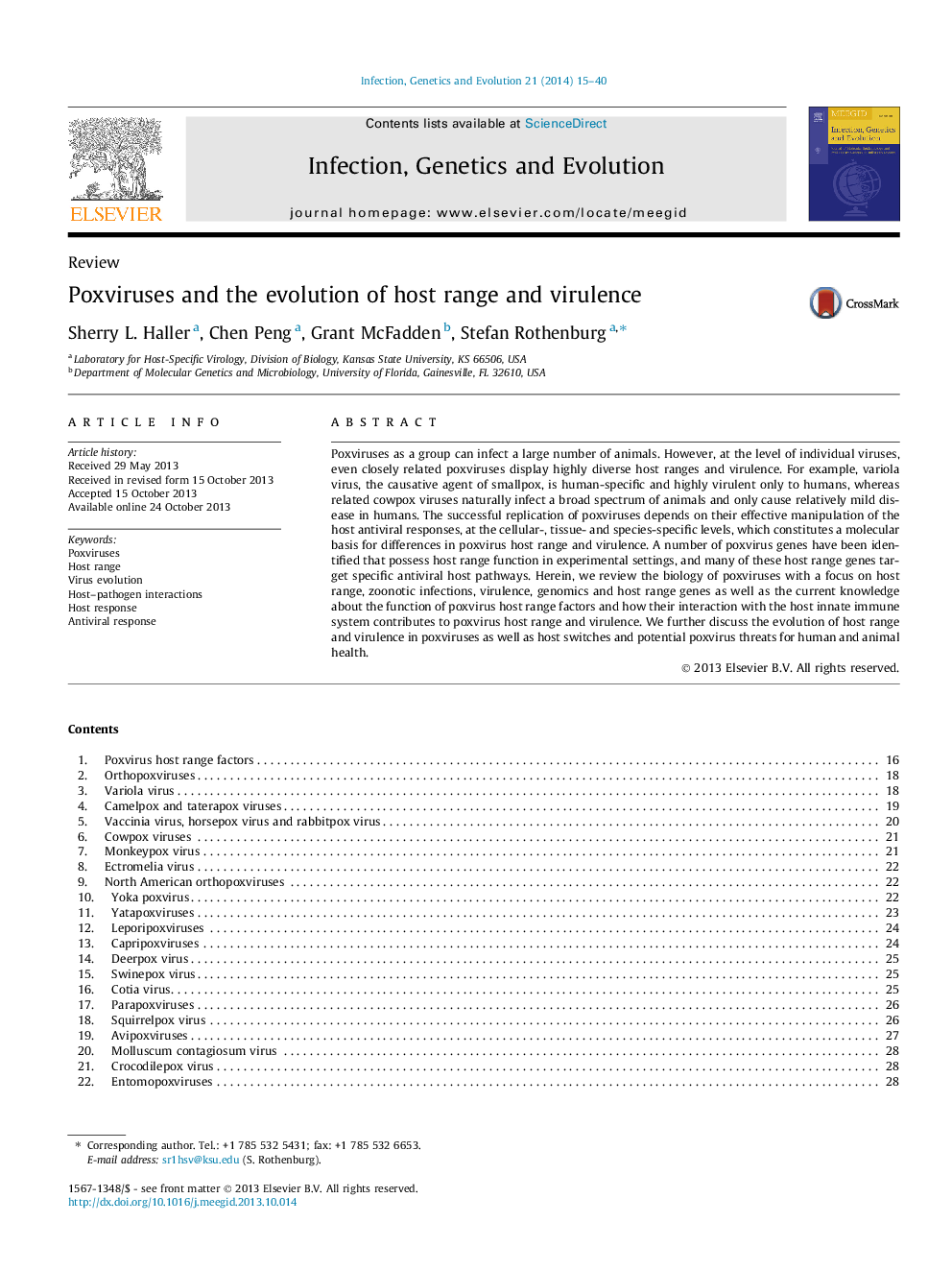| کد مقاله | کد نشریه | سال انتشار | مقاله انگلیسی | نسخه تمام متن |
|---|---|---|---|---|
| 5910159 | 1570182 | 2014 | 26 صفحه PDF | دانلود رایگان |
- Review of poxvirus families and poxvirus genes that influence poxvirus host range.
- Molecular mechanisms poxviruses use to subvert the host innate immune system.
- Evolution of poxvirus host range genes and their role in the virulence of poxviruses.
Poxviruses as a group can infect a large number of animals. However, at the level of individual viruses, even closely related poxviruses display highly diverse host ranges and virulence. For example, variola virus, the causative agent of smallpox, is human-specific and highly virulent only to humans, whereas related cowpox viruses naturally infect a broad spectrum of animals and only cause relatively mild disease in humans. The successful replication of poxviruses depends on their effective manipulation of the host antiviral responses, at the cellular-, tissue- and species-specific levels, which constitutes a molecular basis for differences in poxvirus host range and virulence. A number of poxvirus genes have been identified that possess host range function in experimental settings, and many of these host range genes target specific antiviral host pathways. Herein, we review the biology of poxviruses with a focus on host range, zoonotic infections, virulence, genomics and host range genes as well as the current knowledge about the function of poxvirus host range factors and how their interaction with the host innate immune system contributes to poxvirus host range and virulence. We further discuss the evolution of host range and virulence in poxviruses as well as host switches and potential poxvirus threats for human and animal health.
Journal: Infection, Genetics and Evolution - Volume 21, January 2014, Pages 15-40
